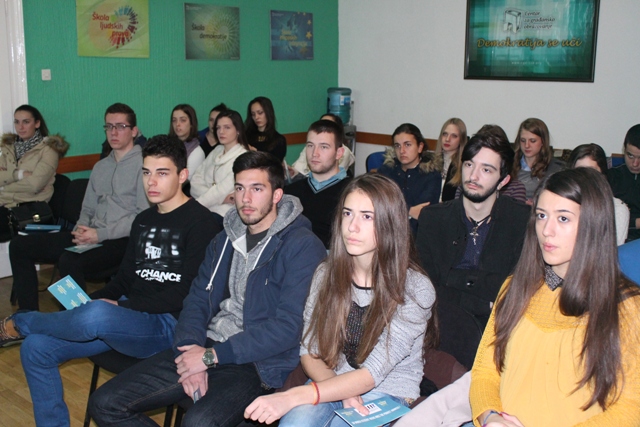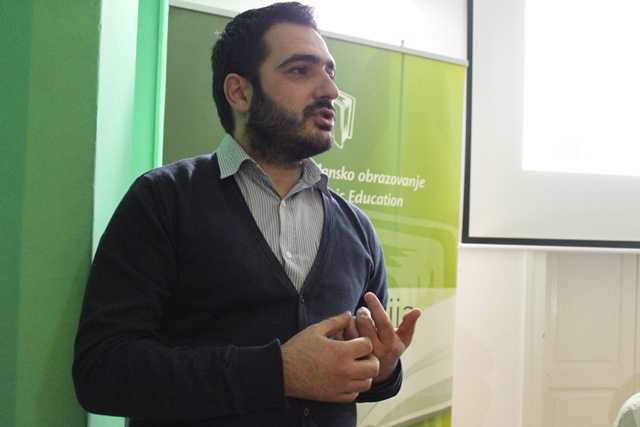Centre for Civic Education (CCE) organised a panel discussion in its conference room titled EU programmes – a new area of educational and developmental opportunities for young people.
The panel is part of the activities of project Overcoming the deficit of knowledge about the EU, implemented by the CCE along with 14 organisations and institutions from EU member states and candidate states with the support of European Commission within the Europe for citizens programme. Project is conducted in cooperation with organisations from Italy, Spain, Czech Republic, Slovakia, Poland, Latvia, Croatia, Bulgaria, Slovenia, Serbia and Macedonia.
Petar Đukanović, programme coordinator, spoke during the panel and presented the project, as well as the manner in which young people can use the programme Europe for citizens through their schools, faculties or organisations. Programme offers more than EUR 180 million for the activities and projects during the period from 2014 to 2020. “Young people in Montenegro are not sufficiently familiar with the available exchange programmes, scholarships and mobility offered by the EU. In addition to opportunities for the improvement of educational career and preparation for competitive labour market, these programmes contribute in the development of basic capacities of young people, such as independence, creativity and development of critical thought. Hence, it is important to enable them the access to helpful information when identifying educational opportunities and possibilities based on which both them as well as the society could benefit from”, stated Đukanović.
Miloš Knežević, coordinator of the CCE Youth group, discussed on programme Erasmus + and his experiences in using the same, particularly emphasising that this programme is one of the resources that young people should use more often as the instrument to overcome the challenges of employment through the adoption of competitive skills which enable more easier inclusion on labour market, more active role in the society and personal development. Additionally, he introduced them with the structure of programme and key measures, and with the manner of applying for disposable funds.
Marina Vuković, scholarship student of Chevening programme of UK Government and Master of Human Rights at York University, spoke about the experiences of studying abroad, advantages and disadvantages of educational systems of EU and Montenegro. She told to the audience that studying on prestigious European universities is not an impossible desire, but rather possible one, and one that should be utilised and pointing out that numerous prejudices regarding the complexity of process of application should not pose an impediment in achieving their goals and ambitions. Studying abroad is a lifetime experience, which really pays off both personally and professionally.
Project objective is to contribute in overcoming the democratic deficit in EU through the improvement of knowledge and motivation of citizens to involve themselves in the development of European societies as functional democracies, multicultural and sustainable society.
This panel was just one of the many that will be organised on different topics related to European Union, challenges that people face as well as the possibilities brought to us by the process of European integration of Montenegro with special emphasis on role and responsibility of citizens.
Svetlana Pešić, programme associate


